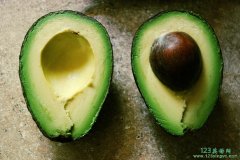高中英语阅读:毛泽东主席
编辑:高中作文网 阅读 次Mao and the CCP inherited a poverty-stricken country that was scarred by war and in political disarray. As chairman of the CCP, Mao directed the PRC’s reconstruction. Following the USSR model for constructing a socialist society, Mao ordered the redistribution of land, the elimination of landlords in the countryside, and the establishment of heavy industry in the cities. Throughout this period Mao relied heavily on aid and expertise from the USSR. The United States became Mao’s enemy, particularly in the Korean War (1950-1953) in which approximately 1 million Chinese soldiers died fighting for North Korea, including Mao’s own son, Mao Anying. Mao feared enemy infiltration and sought to ensure political unity in China. Mao launched several mass campaigns to root out traitors and corruption, including the “Suppression of the Counterrevolutionaries,” the “Three-Anti,” and the “Five-Anti” campaigns. The campaigns, which involved intense investigation into people’s personal lives, left few Chinese citizens untouched. In the “Hundred Flowers” movement of 1957, Mao encouraged intellectuals to criticize the CCP, believing the criticism would be minor. When it was not, he launched the “Antirightist” campaign, quickly turning on those who had spoken out, labeling them as rightist, and imprisoning or exiling many.
Mao’s early experiences with peasant revolution convinced him of the immense potential of peasant strength. He believed that if properly organized and inspired, the Chinese masses could accomplish amazing feats. Beginning in the mid-1950s Mao advocated the rapid formation of agricultural communes, arguing that the energy of the people could help China achieve a high tide of Communist development. This ideology exploded in the Great Leap Forward in 1958. Mao called upon all Chinese to engage in zealous physical labor to transform the economy and overtake the West in industrial and agricultural production within a few years. Afraid to disappoint their leaders, peasants falsified grain production numbers. Several poor harvests caused massive famine and the deaths of millions of people throughout China.
Mao’s policies had failed, but those in the government who criticized him directly, such as Peng Dehuai, were humiliated and purged from office. Criticism of Mao from outside the government was also muted because the educated elite remembered the turmoil of the “Hundred Flowers” and “Antirightist” campaigns of 1957. Mao’s relationship with intellectuals was an uneasy one, and he was critical of the gap between the lives of the urban educated elite and the rural masses. These tensions were among the underlying causes of the Cultural Revolution, a period of social unrest and political persecution launched by Mao in 1966. Mao mobilized youth into the Red Guards to attack his political rivals, including his chosen successor, Liu Shaoqi. With the help of Lin Biao, the leader of the People’s Liberation Army, Mao established himself as a godlike cult figure. All Chinese were encouraged to read the Quotations of Chairman Mao (known as Mao’s Little Red Book), and Mao’s writings were elevated to an infallible philosophical system called “Mao Zedong Thought.” Although Mao became widely revered, his Cultural Revolution policies led to cataclysmic death and destruction throughout China. He died of Parkinson disease on September 9, 1976. At the National Party Congress in 1977, the CCP declared the Cultural Revolution to have officially ended in October 1976.
After Mao’s death his record was reevaluated by his successor Deng Xiaoping. Mao was praised for his contributions in the resistance against Japan and the founding of the People’s Republic, but criticized for his mistakes in the Great Leap Forward and the Cultural Revolution. While many Chinese vilify Mao for his brutality, he is also admired for his power and his role as one of the most influential historical figures in the 20th century. His remains are enshrined in a mausoleum in Tiananmen Square.



